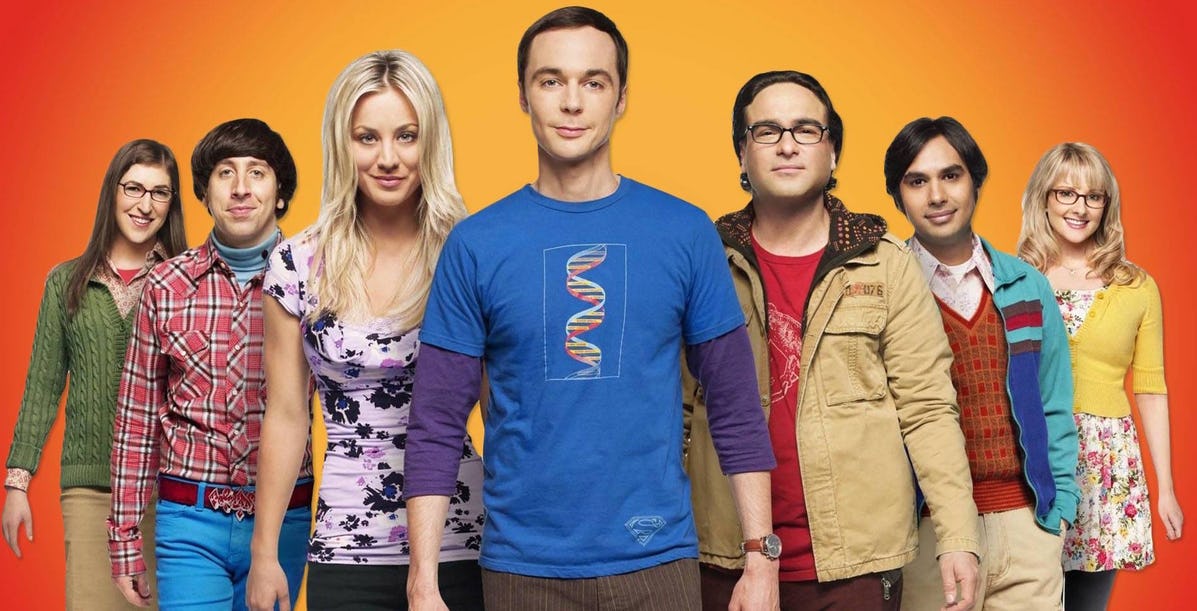Farewell, Big Bang Theory
When you’re a young person, there are certain opinions that are taboo – you utter them at your own peril. You voted for Brexit, for example, or you like Donald Trump. But there is nothing quite as dangerous as confessing that you enjoy watching The Big Bang Theory. The announcement that the show is to end after its twelfth season filled the internet with joy – it’s the show that it’s almost trendy to hate, despite (or maybe because of) its incredible popularity. Why is the show so disliked, and is all the hatred justified?
The show has primarily come under fire for two main reasons – the way it uses nerd culture, and its attitude towards minorities and women. The show and its popularity with a more mainstream audience has unarguably helped nerd culture find a place in modern society, but it has also accompanied the rise of the superhero film (as well as franchises like Harry Potter and Lord of the Rings). Nerds used to be a fringe movement of sorts, but they have never been more popular within wider society – thus, a show that pokes fun at nerd culture as nerds became more predominant was always going to be an interesting bet.
There is nothing quite as dangerous as confessing that you enjoy watching The Big Bang Theory
The four lead males are all nerds, and nerd culture hated the cartoonish versions of themselves on offer – despite character development in the later seasons, the show’s implication is that clever people who work in science jobs or enjoy comics are socially awkward messes. In contrast to other, more nuanced nerdy characters of the same period (Terry Jeffords from Brooklyn Nine-Nine, or Ben Wyatt from Parks and Rec), TBBT’s nerds are a bit one note – they are funny because they like unusual or weird things.
Coupled with this is the fact that a lot of the geekdom references are treated as jokes in and of themselves. Frequently, pop culture programmes or personalities are named, and the laugh track tells you that it’s supposed to be funny, but there’s no joke. It seems as though the show is encouraging you to laugh at people who like Star Wars and cosplay because they’re nerdy things, and nerds are doing them.
Since its inception, TBBT has also been hated by people who dislike its portrayal of minorities, especially in the character of Raj (it’s been 11 seasons, and they still don’t know what to do with him). A nerd stereotype as well as the “brown guy with the funny accent” (to quote MTV India), Raj is also a part of the show’s ‘gay panic’ shows – somebody assumes he’s a homosexual, and hilarity ensues.
It seems as though the show is encouraging you to laugh at people who like Star Wars and cosplay because they’re nerdy things
It isn’t much better in its attitude to women – its original female lead, Penny, was introduced as a hot dumb and promiscuous blonde and a counterpoint to the socially awkward men and although she has received some development (learning to stick at a job she hates, thinking of the future), the show’s fallback is ‘Penny is stupid’ gags. Much of the jokes about Amy relate to her (comparatively unattractive) appearance, and Bernadette is cast as bitchy and manipulative (I really find the character unpleasant to watch). The show’s long run has given the characters chance to grow, with Amy becoming a key part of the show’s emotional core, but it has never truly seemed comfortable with its female characters.
So, with all these reasons, why does anyone like TBBT? Sheldon Cooper is undeniably one of the comic creations of the century, and his interactions with Penny are a highlight. Jim Parsons is perfect in the role, and the character has developed in a way that the rest of the show really lacked – his evolution throughout the series feels right, and the show’s focus on it has paid off. And, despite what the critics say, it makes me laugh – I’m not going to claim that every joke is perfect, but episodes like ‘The Egg Salad Equivalency’ and ‘The Panty Pinata Polarization’ have more hits than misses. It always hits it out of the park with guest stars too – it attracted such cult names as Adam West, Mark Hamill and the late Stephen Hawking, and the Bob Newhart episodes are some of its best.
It has never truly seemed comfortable with its female characters
People always hate anything that is popular, and The Big Bang Theory is certainly not a programme without fault. It’s really interesting that the show’s reception has particularly declined because of its excessive syndication, something which happened during Friends’ initial run (and, like TBBT, critics are now finding that effectively everything in Friends was offensive too – who’d have thought that comedies painted some characters and situations with broad strokes?).
I think that the show has landed in an unfortunate period, where audiences no longer have the tolerance for the classic sitcom format, and so it seems as old-fashioned as some of the jokes it makes. But perhaps people will look back on The Big Bang Theory with the fondness that they apply to other classic sitcoms, especially given the evident degree of love out there for it.

Comments